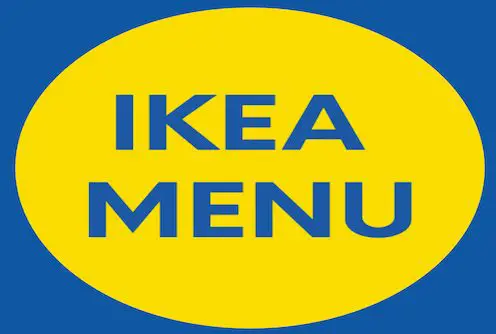At the crossroads of affordability, practicality and value exists the global phenomenon known as IKEA; a brand that goes beyond furniture and home decor, making its mark in the realm of food services. What many may consider an afterthought, the bustling food service sector nestled within the four corners of an IKEA store, is indeed a testament to the company’s commitment to offering a comprehensive, holistic shopping experience. This text aims to shine the spotlight on the lesser-explored facet of IKEA – their food. With a broad stroke, we will gauge what lies at the heart of IKEA’s food concept, tracing the remarkable journey its ingredients embark on, from seemingly obscure origins to our plates. Furthermore, in an era increasingly mindful of ethical and sustainable practices, an evaluation of IKEA’s food sourcing approach can offer insight into whether IKEA’s model aligns with these pivotal requirements.
Understanding the IKEA Food Concept
Understanding IKEA’s Food Philosophy
IKEA views food as an essential part of the consumer shopping experience, with each IKEA store usually featuring at least one restaurant, a marketplace, and a Swedish food market. Their unique food concept is built on Swedish roots, with their cuisine reflecting the simplicity and practicality that characterizes their furniture design. They have an approach of offering healthier, sustainable food options at affordable prices. This is all consistent with IKEA’s mission to provide solutions for a better everyday life.IKEA’s Main Food Offerings and Sourcing
The main food offerings at IKEA include traditional Swedish foods such as meatballs, salmon dishes, lingonberry jam, and pastries. Many of these ingredients are sourced from IKEA’s home country -Sweden- although they also work with suppliers in other locations. IKEA has strict requirements for their suppliers, with processes and standards in place to ensure that their food offerings maintain high quality. They also prioritize sustainability in their sourcing process and are committed to ensuring animal welfare and minimizing negative environmental impact.IKEA’s Approach to Food and Sustainability
At its heart, the food philosophy of IKEA is centered around offering quality food that is accessible to all, mirroring their overarching business principles. IKEA incorporates innovation in their food offerings, catering to the global palate while also staying true to their Swedish origins. Sustainability is a key aspect of their food division strategy, shown through initiatives such as the IKEA Food Waste Project. Complementing this, emphasis is also placed on the health aspect with IKEA continuously working towards reducing sugar and salt content in their food, making nutritional information readily available for their customers.
Tracing the Origins of IKEA Foods
The Origins of IKEA’s Food: Sustainable and Ethical Sourcing
As a multinational establishment from Sweden renowned for its functional designs, IKEA’s in-store dining options and food offerings are an essential part of the overall IKEA experience. IKEA works with a diverse mix of both local and international food suppliers committed to sustainable and ethical farming, ensuring varied origins for their food products based on the specific offering. As an example, IKEA’s iconic salmon dishes and meatballs are sourced from suppliers who demonstrate stringent standards of sustainable practices, animal welfare, and social responsibility.
Tracing IKEA’s Global Food Sources
IKEA’s food offerings embark on fascinating journeys that often span across numerous international borders. Take, for instance, the meat used in IKEA’s well-loved Swedish meatballs. These are sourced from farms worldwide, yet no matter their location, are obligated to adhere to IKEA’s specific Animal Welfare and Antibiotic policies. This commitment to quality and safety is unyielding. Even the salmon, a constant in IKEA’s menu, is exclusively sourced from certified suppliers practicing sustainable fishing methods. In fact, all the seafood served in IKEA originates from fisheries and farms that have earned certification from the Aquaculture Stewardship Council (ASC) or the Marine Stewardship Council (MSC). The grains that are a part of your IKEA meal hails from bread, pastry, and pasta suppliers, with locations influenced by dedicated optimization efforts to ensure freshness. IKEA’s meticulous tracking of each ingredient’s journey guarantees alignment with its stringent quality and sustainability standards, regardless of where it was sourced.

Ethical and Sustainable Practices in IKEA’s Food Sourcing
Commitment to Ethical Sourcing at IKEA
Integral to IKEA’s overarching sustainability strategy is the establishment of rigid standards for ethical sourcing. The global brand is unwavering in its commitment to procuring food products exclusively from suppliers who champion human rights and adhere to fair labor practices. It’s noteworthy that IKEA is a member of the Roundtable on Sustainable Palm Oil, and hence all palm oil in its products is certified as ethically sourced. Furthermore, IKEA is transitioning to only using eggs from cage-free hens throughout its international operations. This conscientious sourcing extends to farmed salmon and other seafood items as well, with plans to only source these from farms that hold Aquaculture Stewardship Council (ASC) certification.
IKEA’s Food Sustainability Practice
IKEA has pursued various environmental sustainability measures to decrease the impact of its food business on the environment. One of these measures is the introduction of more plant-based options in its food offerings. IKEA has stepped up its efforts to contribute to a more sustainable food system by expanding its range of plant-based meals, snacks, and drinks, which is part of its ambition to become climate-positive and circular by 2030. Furthermore, IKEA closely monitors its food waste and has implemented measures to significantly reduce waste across all of its stores. These efforts complement their goal of lowering their carbon footprint and directly reflect the values and challenges of our society.

After an in-depth exploration of IKEA’s food concept, the origins of its food, and sustainability practices, it’s apparent that IKEA’s approach is a complex blend of business practicality, ethical commitments, and dedication to providing an enriching experience to its customers. Their efforts transcend the boundaries of traditional retail, turning sustenance into an additional avenue for customer engagement. By tracing the course of ingredients from their root origin to the IKEA store, one gains a heightened appreciation of the strategic sourcing and sustainability commitments integral to the IKEA ethos. Through its actions, IKEA continues to underline the significance of corporate responsibility, adding layers of relevance and value to the seemingly simple act of dining within their stores.


